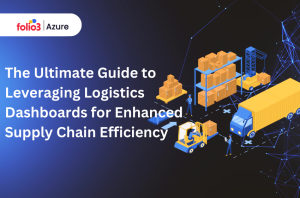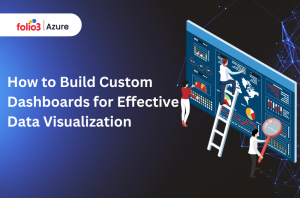Table of Contents
Toggle
Whether you’re a multinational corporation or a small start-up, the quality of your data profoundly impacts your operations, decision-making, and overall success. In this comprehensive guide, we delve into the world of Data Quality Management, exploring its dimensions, significance, challenges, best practices, and real-world applications. By the end of this article, you’ll have a firm grasp of why Data Quality Management is essential and how to implement it effectively.
What Is Data Quality?
At its core, Data Quality Management is the process of defining, implementing, and maintaining data quality standards to ensure that data is accurate, reliable, and consistent. It involves various activities, including data profiling, data cleansing, and data enrichment. Data Quality Management is not limited to a single department; it should be a shared responsibility across an organization.Dimensions of Data Quality
Data quality isn’t a one-size-fits-all concept. It comprises multiple dimensions that help evaluate the overall quality of data. These dimensions include:- Accuracy: Data must be correct and free from errors or inaccuracies.
- Completeness: Data should be comprehensive and not missing any essential information.
- Consistency: Data needs to be uniform and follow the same format and standards.
- Timeliness: Data must be up-to-date and relevant to the context in which it is used.
- Validity: Data should conform to predefined rules and standards.
- Reliability: Data needs to be consistent and trustworthy.
- Relevance: Data should be applicable to the purpose it serves.
Why Is Data Quality Important?
Informed Decision-Making
High data quality is pivotal for making informed decisions. Reliable and accurate data instills confidence in the insights it yields, paving the way for more effective business strategies. Data-driven decision-making becomes a powerful asset when the information is trustworthy, offering a competitive edge in the dynamic business landscape.Enhanced Customer Experiences
Comprehending and connecting with customers is a top priority. The foundation of this connection lies in the quality of customer data. When data is clean, consistent, and comprehensive, it paves the way for personalized interactions. This personalization, in turn, fosters heightened customer satisfaction, forming a pivotal element in fostering loyalty and driving success. A deep understanding of customer needs and preferences is only attainable through data that is not just accurate but also holistic. In this era of data-driven operations, the value of such well-managed data cannot be overstated.Regulatory Compliance
With stringent data protection regulation, compliance becomes significantly smoother when your data exhibits high quality. High-quality data mitigates the risk of non-compliance and the resultant penalties. With accurate, consistent, and reliable data, organizations can navigate these regulatory waters with confidence, safeguarding both their reputation and financial stability.Efficiency and Cost Reduction
When data is accurate and consistently reliable, it minimizes the need for time-consuming error correction. This reduction in error correction efforts not only saves valuable time but also results in substantial cost savings. Such efficiency is vital for organizations aiming to optimize their processes and resource allocation.Key Challenges in Data Quality Management
While the benefits of data quality management are clear, it’s essential to acknowledge the challenges that come with it:- Data Volume: As organizations accumulate vast amounts of data, managing and ensuring its quality becomes increasingly complex.
- Data Variety: Data comes in various formats and structures. Managing structured and unstructured data requires diverse tools and techniques.
- Data Velocity: The speed at which data is generated and updated can make it challenging to maintain its quality in real time.
- Data Governance: Establishing clear data ownership and governance processes is critical, but often a challenging task for many organizations.
- Human Error: Human error is a leading cause of data quality problems, and can occur at any stage of the data lifecycle, from data entry to data analysis.
Best Practices for Data Quality Management
To ensure effective data quality management, consider these best practices:- Establish Data Quality Standards: Clearly define what constitutes high-quality data for your organization, and document these standards.
- Data Profiling: Use data profiling tools to gain insights into your data, identifying quality issues and areas that require improvement.
- Data Cleansing: Regularly clean and validate your data to remove inaccuracies, duplicates, and inconsistencies.
- Data Enrichment: Augment your data with additional information from reliable sources to enhance its value.
- Data Quality Monitoring: Implement tools and processes for continuous data quality monitoring and reporting.
Tools and Technologies for Data Quality Management
The field of data quality management is backed by a variety of tools and technologies, including:1. Data Quality Software
Tools like Informatica, Talend, and IBM InfoSphere specialize in data management. They cover data profiling, cleansing, and monitoring.- Data Profiling: These tools analyze data from various sources, offering insights into data quality, structure, and relationships.
- Data Cleansing: They correct data imperfections by standardizing and deduplicating it, ensuring accuracy and consistency.
- Data Monitoring: These tools provide real-time or scheduled monitoring, alerting organizations to data anomalies. This constant oversight helps maintain data quality and compliance. These tools enable organizations to leverage data effectively for informed decision-making.
2. Master Data Management (MDM)
MDM solutions, such as SAP Master Data Governance and Informatica MDM, are crucial for sustaining data quality. They centralize and manage essential data assets, ensuring consistency, accuracy, and integrity. By unifying data governance, validating data, and providing traceability, these solutions enhance decision-making, efficiency, and compliance readiness. In summary, MDM solutions are a linchpin for data quality and organizational performance.3. Data Integration Platforms
They streamline data flow, cleanse and harmonize data, and maintain accuracy, essential for reliable insights and decisions in our data-driven world. They ensure data quality during its movement and transformation. Here are some key players in the market- Microsoft Azure Data Factory
- MuleSoft
- Pentaho
- Oracle Data Integrator



